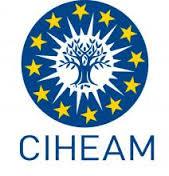Resource information
Ranching generally causes a progressive deforestation. Nevertheless in Mediterranean countries trees are still present in many pastoral systems, here referred to as silvopastoral systems (SPs). Trees provide products as fruits as human food, fruits or leaves as fodder, wood and firewood, environmental services like patches of soil fertility and shelter for animals, and environmental goods such as carbon sequestration, water yield and quality and reinforced biodiversity. However, most of the SPs locate in marginal areas, have low commercial profitability and are subject to two divergent trends, intensification and extensification or abandonment that compromise their long-term persistence. Here we analyzed current threats/constraints and new challenges for the future of SPs based on experience gained in Iberian dehesas. We stress the need of a comprehensive and categorized map of SPs and a database of management practices as adaptive solutions to environmental and socioeconomical contexts. We propose a set of topics for future research projects that should integrate traditional and scientific knowledge favoring innovative techniques for production of timber and non-timber forest products, livestock, and cultural and environmental values.



